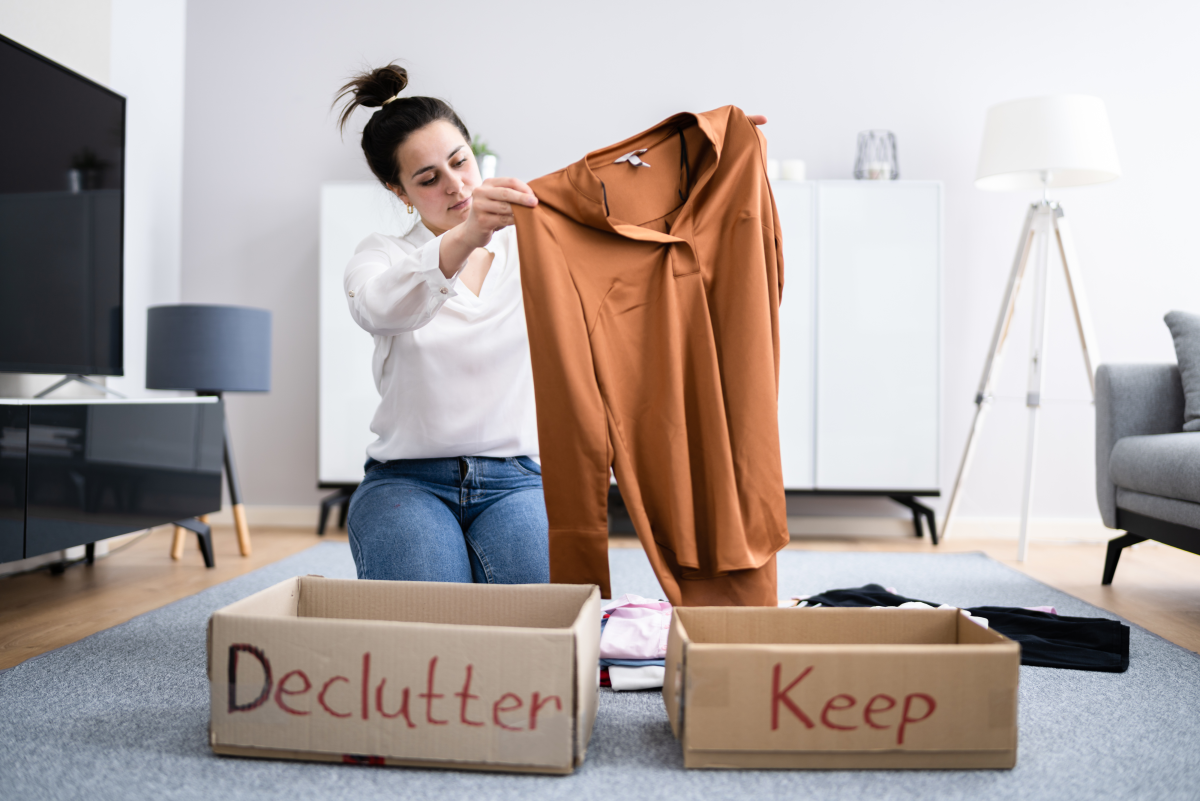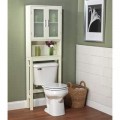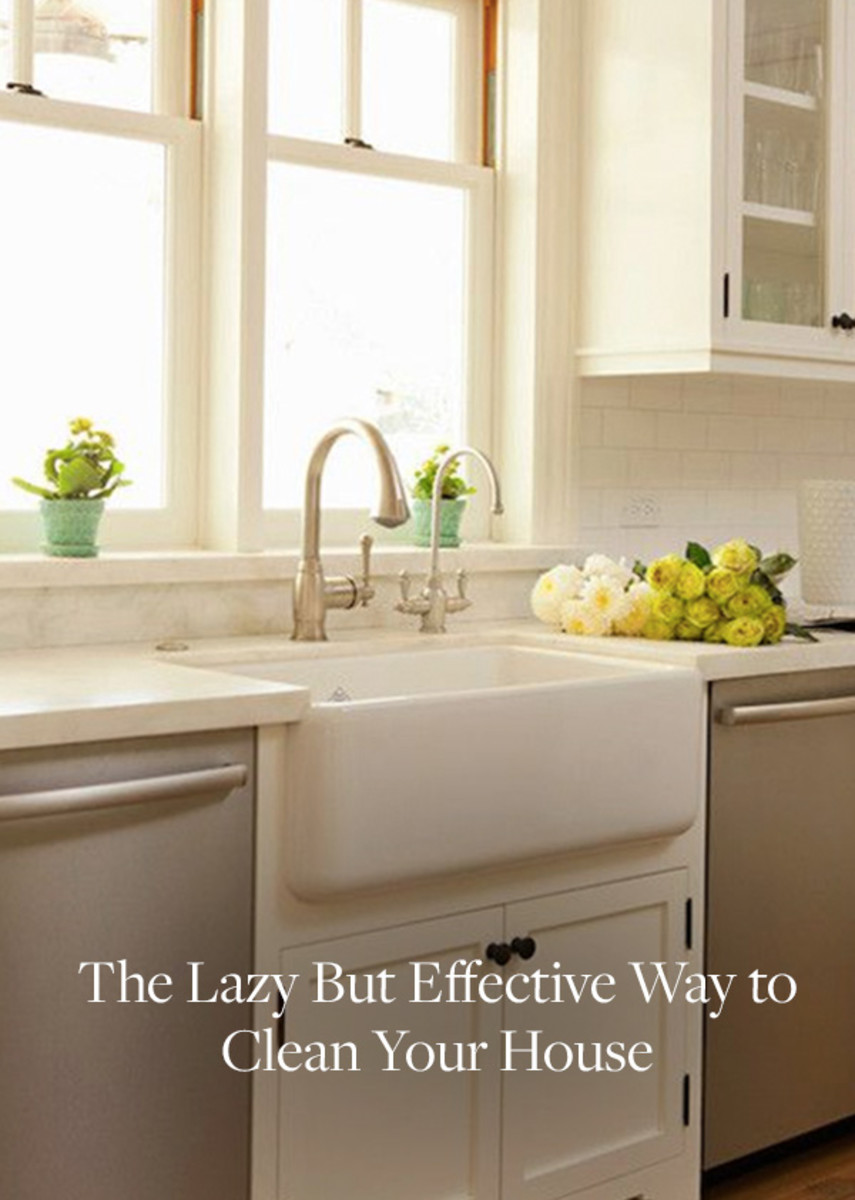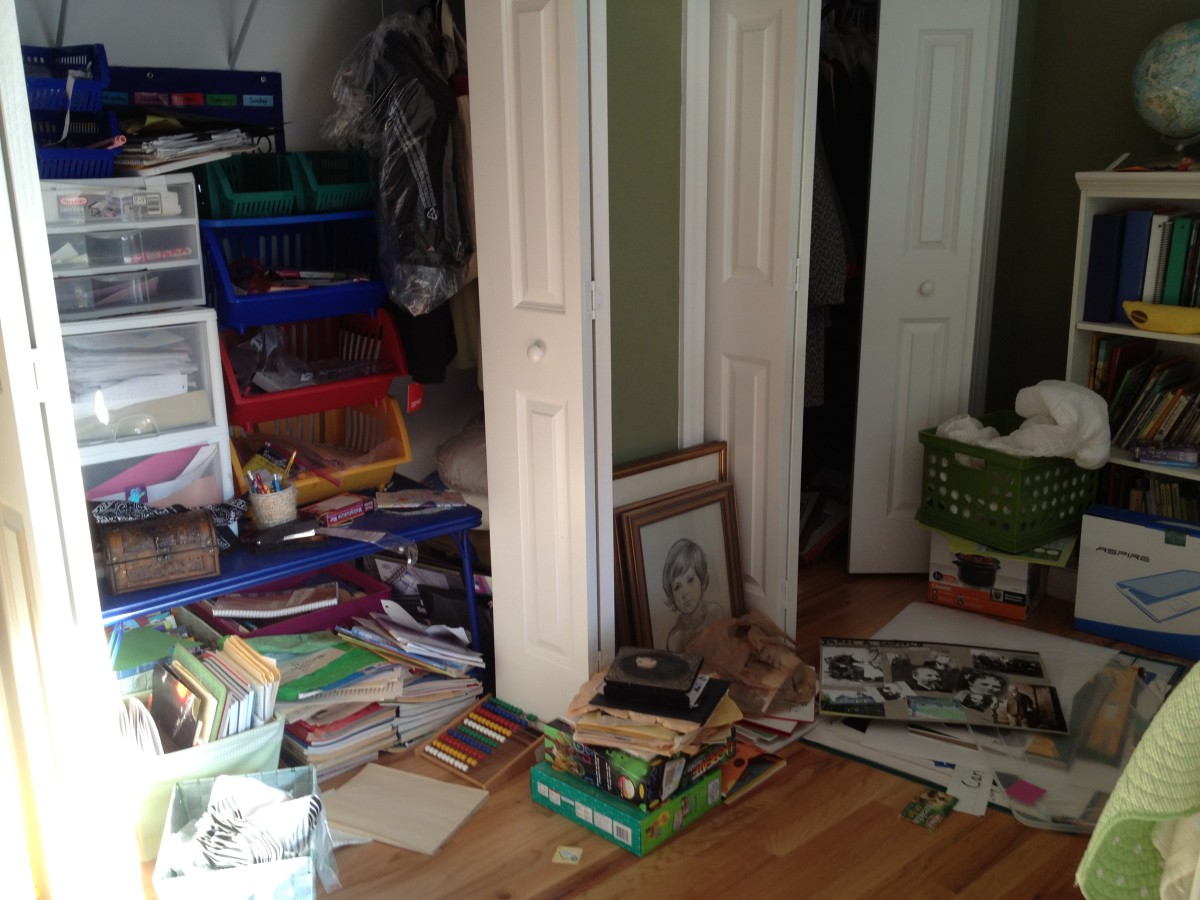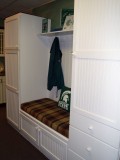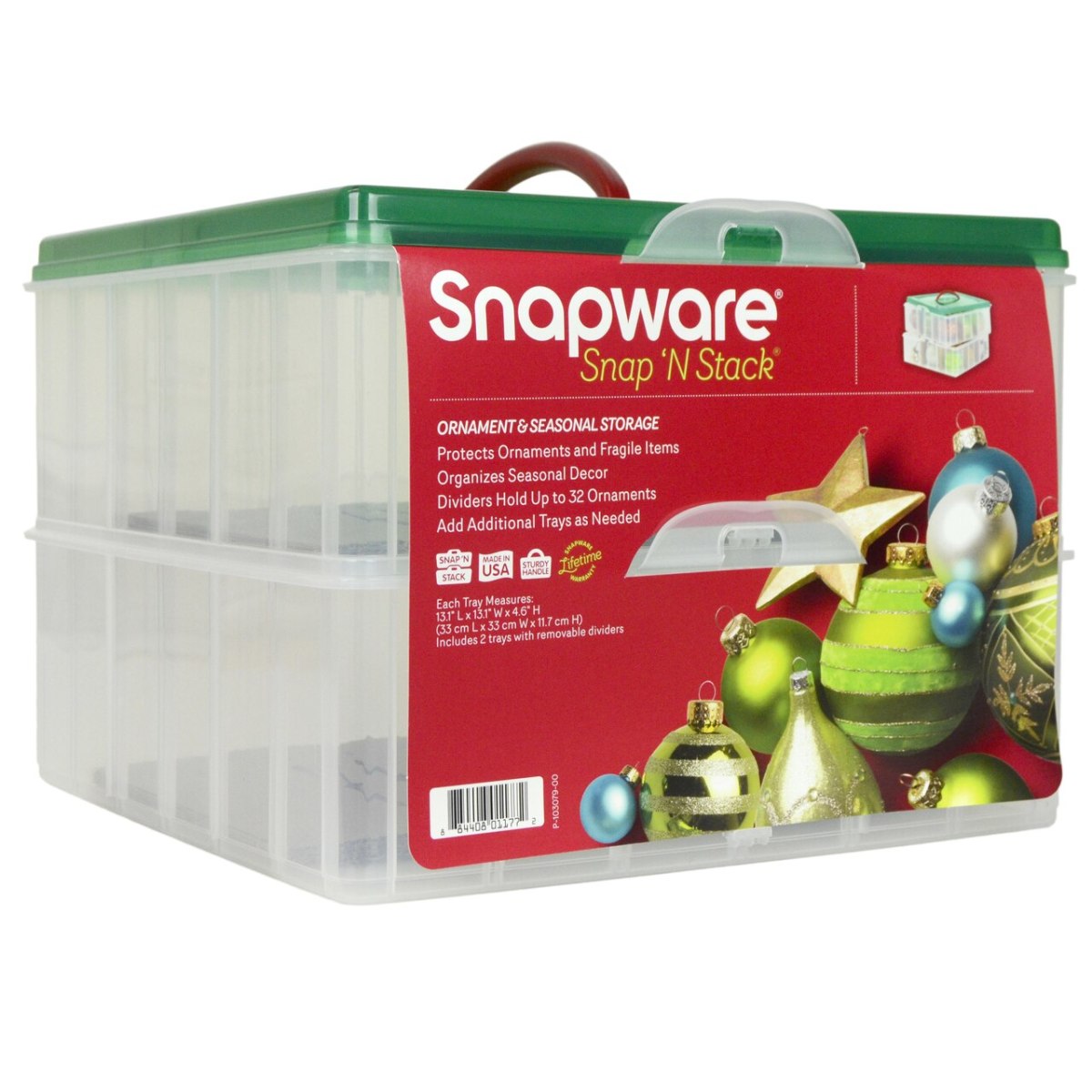Quick Tips For A Clutter Free Home
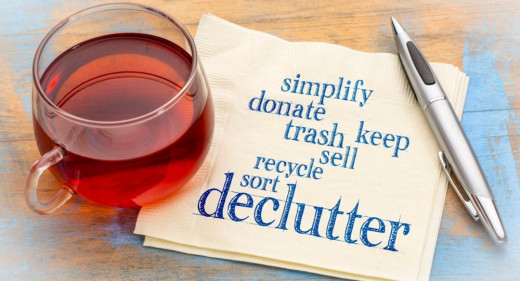
In this fast paced busy day and age, it’s really easy to run out of time to do daily tasks for your home. After a long day from work, or with a family of kids, it’s easy to find yourself exhausted and not capable of having enough energy to maintain your home. It can also seem like every time you clean your house, the next day everything is back to normal and you just find yourself with endless frustration over the situation. Or perhaps that isn’t it at all. Perhaps you have too many possessions and you’re running out of room for them all.
Clutter is something that every home owner wants to avoid, but the task is not as easy as it may seem. Keeping your organization intact can be a daunting task when there are so many other important things to do with your time and energy. After a while, you realize that you’re one “I’ll do it later” away from having the housing authorities knocking on your door to let you know that your house is considered to host unlivable conditions. What do you do at the point when you realize that your house is a bigger mess every time that you try to put off cleaning it and no matter how many times you try to say that you will get to your mess later, you never do? It’s time to face the clutter in your house and realize that you can defeat this enemy.
Or maybe you’re looking to take preemptive strikes to make sure that you never have to worry about that. There are many reasons that a normally tidy person might be staring the possibility of a cluttered future in the eye. Maybe you’ve got someone new moving into your home, or you’ve just started a new hobby that you know will take up more space than you have available.
Whatever the reason you’re looking into reducing clutter, there are plenty of quick tips and pieces of advice that might help you. Of course, saying you’re going to do something and doing it are two completely different things. Finding time out of your busy schedule to clean is something that not everyone has the luxury of being able to do, and once you clean, it’s hard to keep your newly cleaned home the same fresh state that you just put it in if you haven’t taken the proper organizational measures. The mundane task of cleaning daily is something that most people want to forget about. There’s always the concept of ‘Spring Cleaning’, which helps many people by giving them the excuse of a new season to finally deal with the mess around their house. No matter what your own personal reason for searching out a clutter-free future, you definitely don’t want to have your friends start mentioning that your house should be on the TV show Hoarders. How do you finally defeat the demon mess that has undoubtedly tried to make a home for itself out of your house? How do you stop yourself from binge shopping and adding to a collection of things that you’re never going to use and just take up space in your house? Hopefully after reading this, you’ll gain more insight on how to keep your life and home clutter free.
The first thing that you need to do is figure out where you belong on the clutter ladder; are you encroaching on hoarder status or are you just looking for a few tips to prevent that? Knowing where you stand and how much help you need to overcome your clutter worries will help you figure out how to navigate this book to get the help that you need from it.
Quick Tips For Keeping Your Home Clutter-Free
While the initial tidying of your house is definitely important and a major milestone, it’s no use if you don’t take preventive steps to keep it clean and your efforts will all be for not. We’ve all been there; one day, your home is clean and organized and the next, the clutter from before is back just as it had been or perhaps even more so. We don’t know how it happens but it does and it’s a little phenomenon some experts are calling creeping clutter.
The clutter slowly but surely works its way into your tidied spaces and it can leave you feeling more than a little helpless, even to the point of making you feel like your initial efforts have been futile all along. In order to prevent this from happening, you’ve got to stay on top of the clutter in your home. While some of these tips are larger than others, some are quite small and simple, though it’s up to you on which ones are best suited for your home and particular clutter situation.
Recreational shopping that isn’t absolutely necessary might be a good idea to avoid because while you think you might have somewhere to put all of your new things, you might not and this could lead to the inevitable recluttering of your home. While treating yourself sometimes certainly isn’t a bad thing, you should consider how much space you’ve got and if you’re really going to use your new purchase or not because if you aren’t, it’ll just be taking up valuable space within your home that things you can use could, not to mention that it’s more possible clutter in the long run as well.
While it might sound silly, some people find that watching the hit TLC show ‘Hoarders’ in an effective way to encourage them to tidy their homes. Many of the cases on the show lean toward the more extreme side of the spectrum but that being said, the cases weren’t always as overwhelming (and often times just disturbing) as they are now at one point and more likely than not started with an ‘average’ amount of clutter that simply got out of control over a period of time.
If you have any, decluttering your children’s toys before birthdays or holidays is a good idea because naturally, children aren’t going to play with every single toy that they own and they either grow out of them or bore of them eventually. Getting rid of these unneeded toys is a good idea, especially before holidays or birthdays when new toys are going to be coming. ‘Out with the old and in with the new’ allows for more space for the new toys and less clutter over time. Donating the toys to a group like the Salvation Army or your local thrift store is a good idea if you have children with unwanted or unneeded toys on their hands.
For some people, keeping things out of an emotional attachment for that particular object is a big problem and can eventually lead to clutter because of their unwillingness to part with the item. While it might be hard to part with these things, it is sometimes necessary and if nothing else, can lead to less clutter for your home. Some people have found that taking photographs of their things before selling or donating them helps them part with the item more easily.
While clutter in the home can be a problem, clutter in the mailbox can be too. While it might be easy to leave bills or junk mail lying around, you shouldn’t do it because it’ll eventually lead to clutter and you may or may not know what is important and what isn’t anymore because everything’s became a jumbled mess. A way to solve this is to bring in your mail when you receive it and sort through it, discarding what you don’t need and keeping what you do need so you don’t find your counter top buried in mail, which can lead to confusion and a general feeling of messiness and disarray. Some people have found that purchasing a basket for the mail and not letting into the house before it’s been sorted through helps them so that might be something to try as well.
Making sure that everything has a place of its every own can be effective. Books should be on the bookshelf, clothing should be in their appropriate drawers and closets, dishes should be in the cabinet and so on. Everything having a place can be an effective means of reducing clutter because if everything is put where it belongs, it won’t be lying around. While there’s no shame in forgetting some things every now and then, doing it too often can result in it becoming a problem. If you’ve got children, you should teach them the proper places for everything as well because keeping a clutter-free home will only work if every family member is involved in some way. Even younger children can learn basic organization early by simply putting their toys away.
Some people find that buying or subscribing to magazines ends in their home being cluttered because they can simply get all the news and information that they need by browsing the internet. This way, you won’t be cluttering your home and you’ll also be saving a bit of money at the same time, something that very few people can resist and don’t need to do. For the most part, the same articles in the magazines are also available online and in the age of laptops, tablets and smartphones, almost everyone has access to the internet in some shape, sort or fashion at their fingertips.
Switching to back up hard drives is an effective means of saving paper. You can have more information in one space than you can lots of paper and not only does this make finding what you need easier, it’s also better for the environment because an abundance of paper also requires an abundance of trees. Without as much paper lying around, it’s harder for it to build up to the point where it’s jumbled into a confusing, frustrating mess.
Some people have become more strict about their kitchen counter top space, even to the point of taking their fruit bowls away because they’ve found that it’s a magnet for clutter. It’s a possibility that the creeping clutter could start with a button or a few bobby pins and end up with things like your mail and before long, the bowl has accumulated more clutter than it has fruit! Some people make seeing this space clutter free a goal and anything that’s on it gets put into its proper place immediately.
If you’re up for the endeavor, you could go on a no spending challenge for three to six months. While this obviously doesn’t mean not paying bills or buying essential and consumables, it does apply to impulse buying and you might find that your clutter situation is better because of it, in addition to the fact that it’ll undoubtedly save you a bit of money as well that can be spent on other things.
Much like the mailbox, your refrigerator and pantry can become cluttered as well. This becomes a problem when grocery shopping time rolls around and you find that you have no room to put all of your new groceries because the reality in the refrigerator and pantry are both taken up by the old ones. If you keep them cleaned out, your refrigerator will undoubtedly stay fresher and it’ll make grocery shopping day less of a hassle because you won’t have to struggle with clutter to find places to put your fresh groceries. Cross contamination of spoiled food and fresh food isn’t just scare tactic; it’s a very real threat as well so all in all, a clean refrigerator is a happy refrigerator.
One organizational job per day on top of regular cleaning can keep clutter from building up without feeling too overwhelming in the process. In addition to your daily routine, you might also find that it’s easier than you think to go ahead and clean out one of your desk drawers or a cupboard. Little things like this take no more than fifteen or twenty minutes and on the plus side, stop clutter from growing to the point where it feels like a mountain.
Having a donation box at your front door can make parting with things that you no longer need easier because it’s in plain sight and you pass it every time you leave the house, allowing for a reminder, whereas having your donation box somewhere where you can’t really see it wouldn’t do much good because it’d be easier to forget about because you wouldn’t pass it as often as you do if it’s at your front door.
Some people withdraw a certain amount of money from their bank account to live on for the week, keeping the leftovers in the account unless it’s something that they really want. This can cut down on impulse buying because, while having to go to the bank or online to withdraw the money, you can think about whether or not you need to save it or not and whether or not you really want whatever you’re thinking about buying. Because many are in situations where saving money certainly won’t hurt, keeping your extra money squirreled away can help you put things into perspective more effectively than if the money was burning a hole in your wallet.
There’s also a simple question that you can ask yourself when deciding on whether or not you should get rid of something: would you be upset if you lost it by mistake and would you really care? If not (or if you’d be somewhat glad that you lost it) it’s probably a good idea to go ahead and get rid of whatever it is. If you keep things that you don’t want or need, the likelihood of creeping clutter is higher because you’ll begin to run out of room for all of your things. In addition to stopping clutter from building after your initial cleaning, you’ll also make room for the things that you buy that you do care about.
Tidying up before bed each night can also stop the build up of clutter because most people already have a nightly routine set in place anyway and even ten minutes of tidying before bedtime can help more than you think. Anything is better than nothing, after all, and keeping your home tidy isn’t a task that has to be daunting or outrageously difficult.
Some people prefer getting rid of one unwanted idea for every new item that comes in and find that it helps them stay on top of their clutter situation because that way, everything’ll always have a place and you won’t run out of space. While that may not sound too appealing to some, there’s usually something that you’re probably better off without lying around and getting rid of these things systematically also helps with the clutter situation.
You can also perform regular declutterings. If you feel clutter creeping up (and a key sign of this is looking around and feeling overwhelmed) you should deal with the issue immediately before it has time to escalate and get out of control. You can take a basket and go through each room in your home, picking up any items that are out of place and putting them in the basket. Don’t be afraid of filling up the basket multiple times if you need to, depending on how bad the clutter in your home is getting. You can then empty the contents onto the table and begin to start going through it until the table is clean once again. If there are things that you don’t need, those can go in the trash or into your donation box while the rest goes back into its proper place once again.
We’re all guilty of scrimping on details form time to time, such as failing to unplug and put away the toaster or putting the art supplies back into the boxes or leaving laundry on the bed or table. Whether we realize it or not, we’re essentially creating an opportunity for more clutter to invade that space. A tidied space makes us strive to keep it that way whereas a cluttered space in a breeding ground for more clutter.
Last but certainly not least, you should know the limitations of whatever situation you’re in. Some things can’t be changed and thinking otherwise is a recipe for living in a state of almost constant stress and anxiety, something that isn’t good for you or for those around you. Where there are younger children, there’s going to be toys. Where there are older ones, there’s going to school supplies and lunch bags and homework. These things are simply a part of life and while that doesn’t mean you shouldn’t try to keep your home tidied, that being said, you shouldn’t make every day into an uphill battle and should rather do what you can to keep your clutter from getting out of hand, count your losses, let it go and move on with your life.
Cleaning up your house and keeping it clutter-free can seem like a humongous and large task. It might feel like it’s impossible. The truth is, it isn’t, and it’s very likely that it will be easier than you could have ever imagined.

